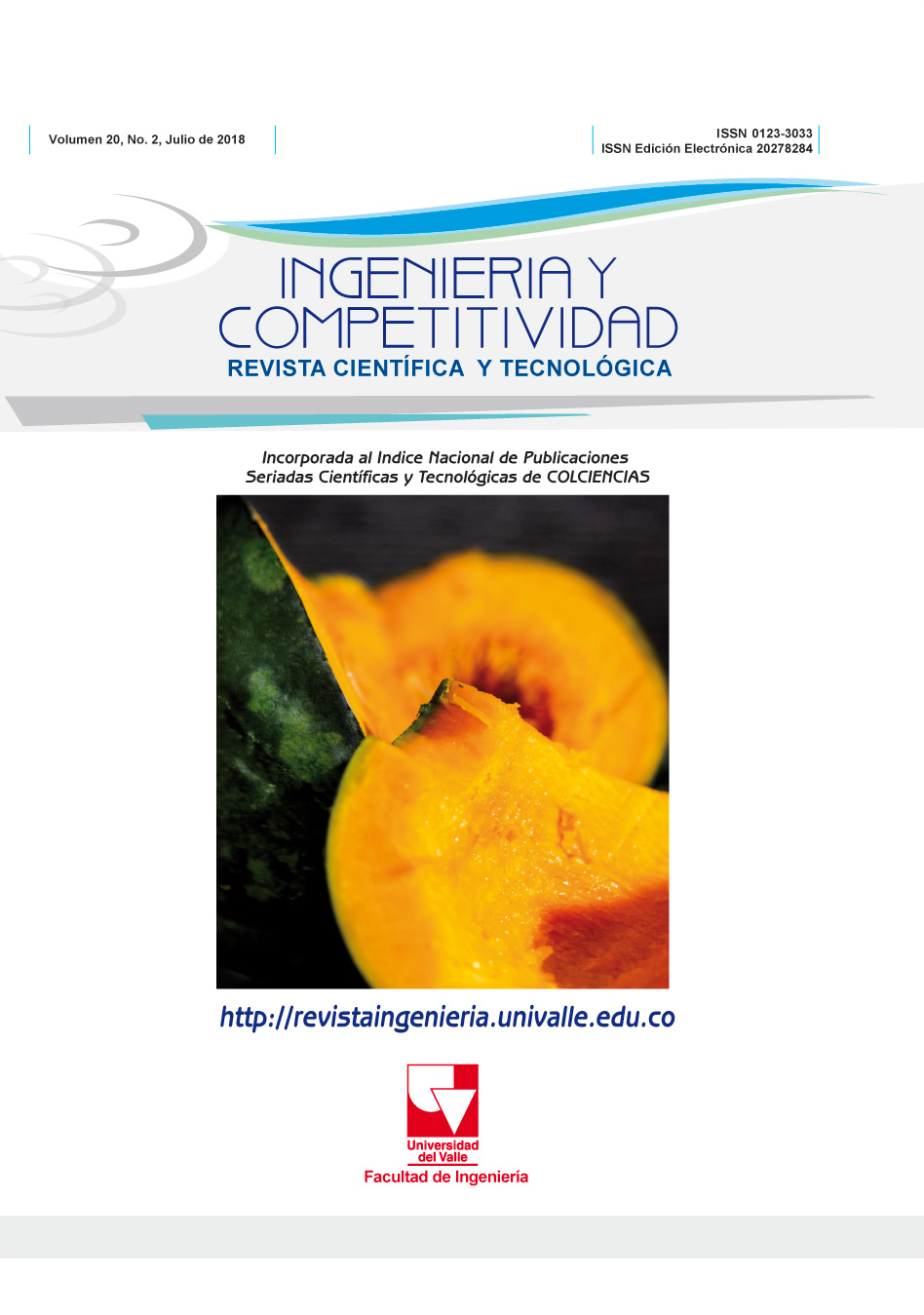Mejoramiento de la respuesta transitoria y la eficiencia energética de un sistema de refrigeración con compresor de velocidad variable usando metodología Anti-Windup
Palabras clave:
sistema de refrigeración, compresor de velocidad variable, topología anti-windup, control en lazo cerradoContenido principal del artículo
Este artículo presenta una metodología de control para mejorar el comportamiento transitorio y la eficiencia energética de un sistema de refrigeración que utiliza un compresor de velocidad variable. El objetivo de control es mantener la temperatura del compartimento en el punto de ajuste deseado, a pesar de las condiciones variables de carga térmica o las perturbaciones. Se obtuvo un modelo del sistema de refrigeración. Las variables de interés fueron la temperatura
del compartimento, la temperatura del sobrecalentamiento del evaporador y la velocidad del compresor de velocidad variable. Mediante el uso de simulaciones y pruebas reales del sistema de refrigeración, se encontró que una implementación convencional de un controlador de lazo cerrado causa un fenómeno conocido como “windup”, que conduce a la saturación del compresor de velocidad variable y disminuye el rendimiento transitorio del sistema de refrigeración
y aumenta el consumo de energía. Además, la temperatura del sobrecalentamiento del evaporador no se vio significativamente afectada por la velocidad del compresor variable, por lo que la única opción para mejorar el coeficiente de rendimiento del sistema de refrigeración fue la reducción del consumo de energía del compresor de velocidad variable.
Se propuso una topología “anti-windup” para el controlador de lazo cerrado para evitar la saturación del compresor de velocidad variable. Las simulaciones y pruebas del sistema de refrigeración mostraron una mejora importante del comportamiento transitorio y un ahorro del 10,52% en el consumo de energía.
Downloads
Los autores que publican en esta revista están de acuerdo con los siguientes términos:
Los autores ceden los derechos patrimoniales a la revista y a la Universidad del Valle sobre los manuscritos aceptados, pero podrán hacer los reusos que consideren pertinentes por motivos profesionales, educativos, académicos o científicos, de acuerdo con los términos de la licencia que otorga la revista a todos sus artículos.
Los artículos serán publicados bajo la licencia Creative Commons 4.0 BY-NC-SA (de atribución, no comercial, sin obras derivadas).

